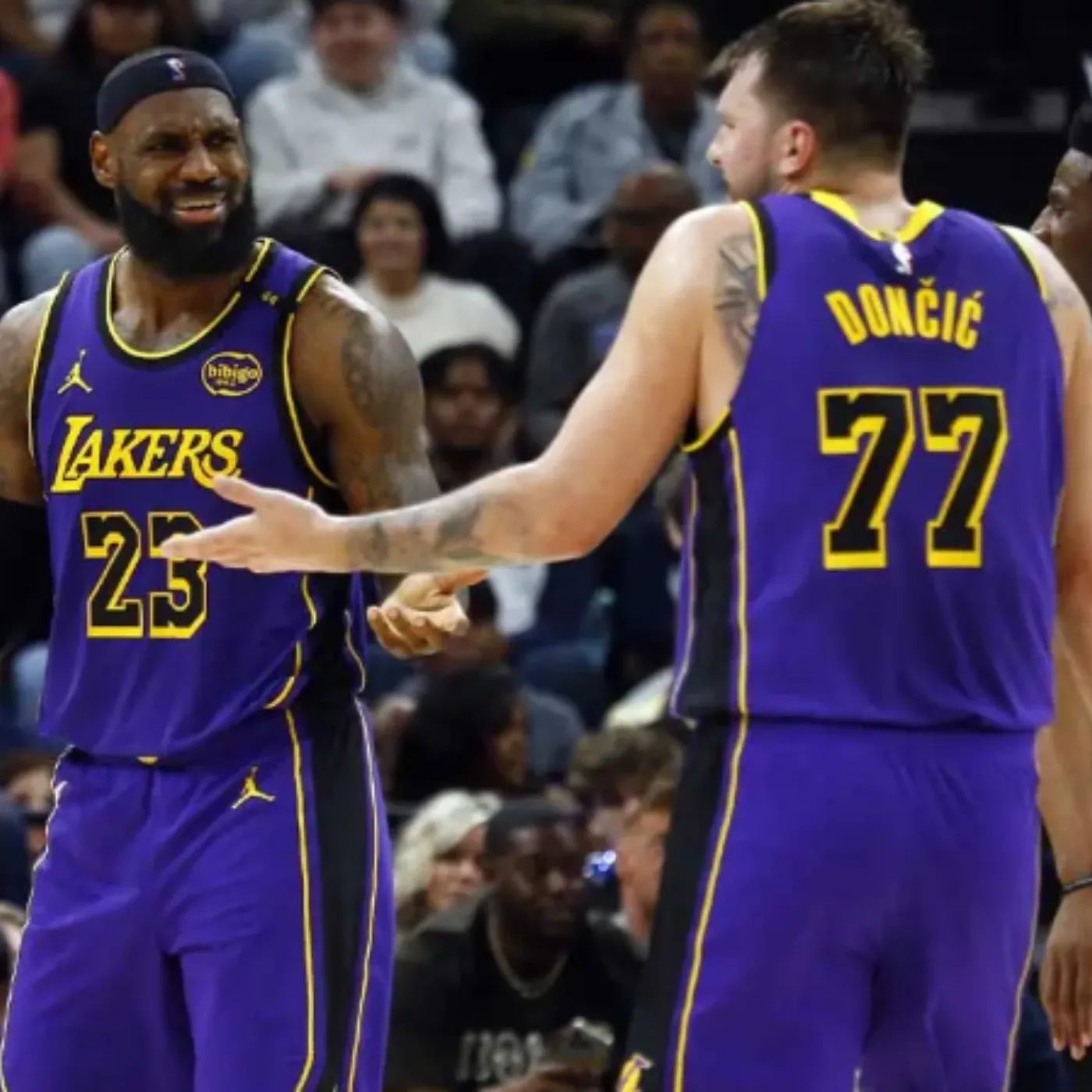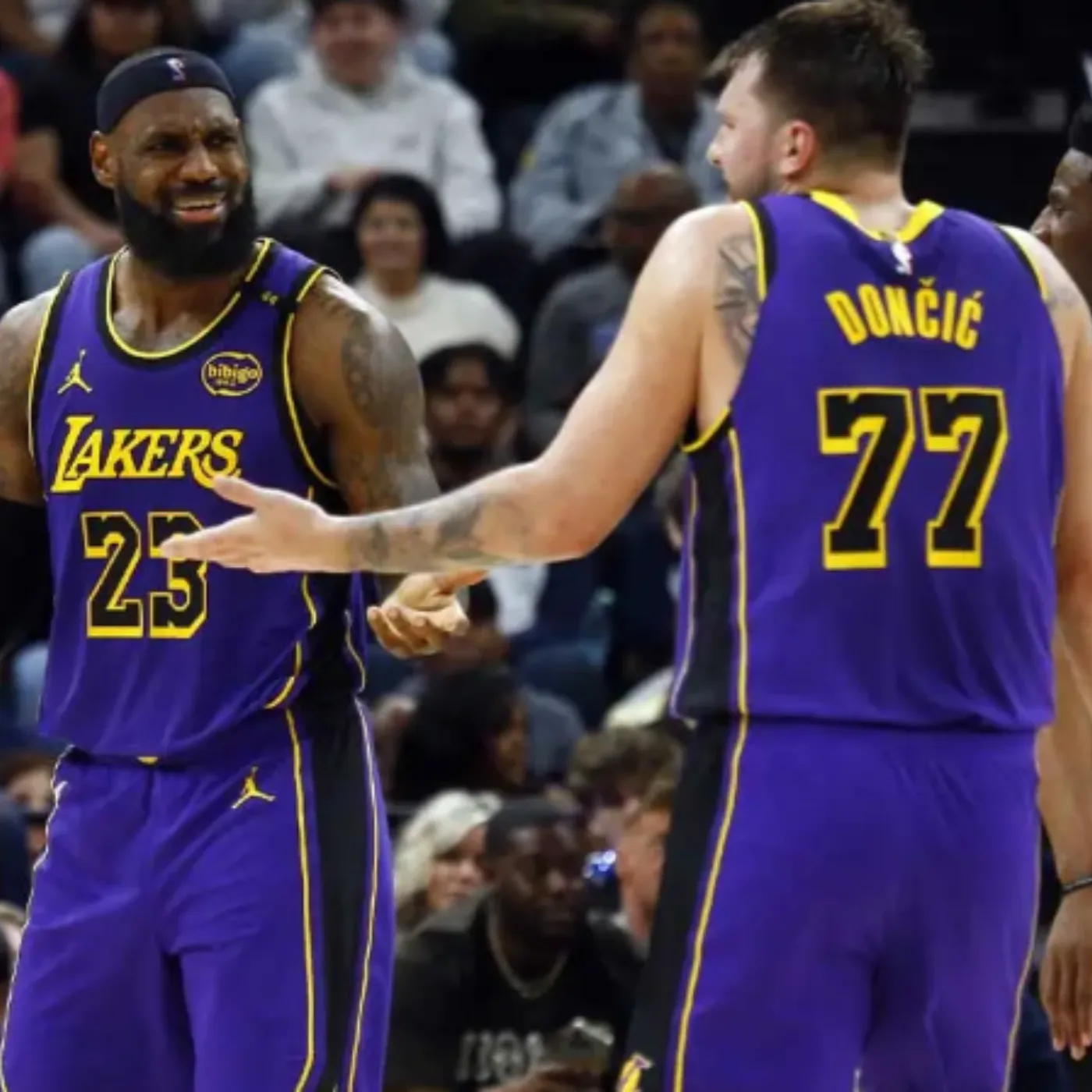
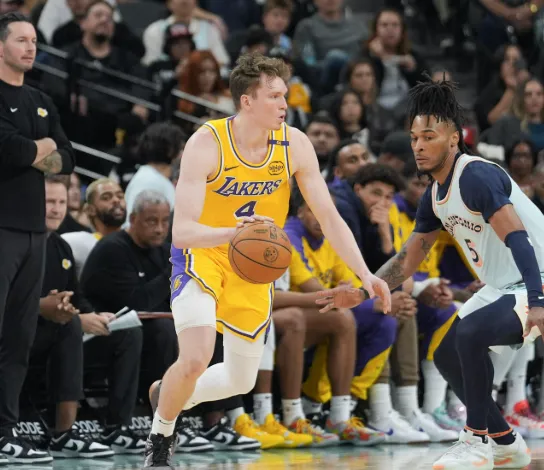
The defensive struggles of Dalton Knecht have sparked a debate: Can this rookie go further with his scoring ability?
Dalton Knecht, the Los Angeles Lakers’ 17th overall pick in the 2024 NBA Draft, has quickly made a name for himself with his impressive scoring ability. However, his defensive struggles have sparked a debate: Can this rookie’s offensive prowess outweigh his defensive shortcomings?
Offensive Brilliance
Knecht’s scoring ability has been a highlight of his rookie season. Averaging 9.1 points per game with shooting splits of 46.1% from the field, 37.6% from beyond the arc, and 76.2% from the free-throw line, he boasts a true shooting percentage of 59.4%. His standout performance came against the Utah Jazz, where he scored a career-high 37 points, including nine three-pointers, tying an NBA rookie record.
The Lakers’ offensive rating with Knecht on the court is 121.4 points per 100 possessions, which would rank second in the league. His presence stretches defenses, creating space for stars like LeBron James and Anthony Davis.
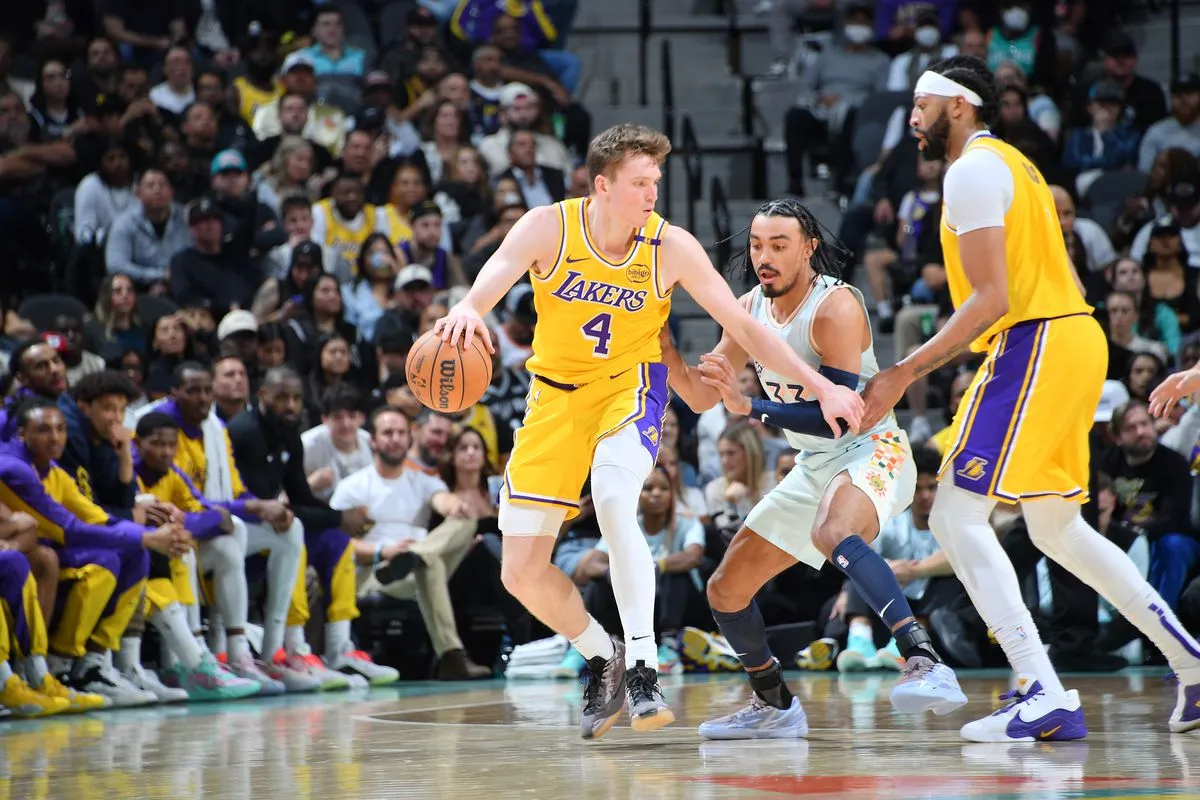
Defensive Concerns
Despite his offensive contributions, Knecht’s defense has been a concern. He has posted a -1.8 defensive box plus/minus, indicating below-average defensive performance. Scouting reports have noted his tendency to get exposed in individual perimeter matchups and his reaction speed on closeouts.
However, it’s worth noting that the Lakers have a defensive rating of 115.8 when Knecht is on the court, compared to 117.1 when he’s off, suggesting a marginal improvement. While these numbers are not stellar, they indicate that his defensive impact may not be as detrimental as initially perceived.
Balancing Act
The question remains: Can Knecht’s scoring ability compensate for his defensive shortcomings? His offensive contributions have been significant, and with continued development, he could become a more well-rounded player. The Lakers’ coaching staff, led by JJ Redick, will play a crucial role in his defensive improvement and overall growth.
What sets Knecht apart from many rookies is his mature approach to the game. At 23, he entered the NBA older than most rookies, and that maturity has been visible in his understanding of spacing, shot selection, and team roles. He isn’t just scoring; he’s helping his team play smarter on offense.
While he may not yet be the two-way player teams covet, he doesn’t need to be a lockdown defender to be valuable. If Knecht can become a competent team defender, understanding rotations and positioning, he could avoid becoming a defensive liability. Improving footwork, strength, and communication will be key.
Veteran Influence and Team Dynamics
One advantage Knecht has is being surrounded by seasoned veterans. With players like LeBron James and Anthony Davis as teammates, he benefits from daily examples of elite defensive habits and professionalism. LeBron, in particular, has been known to mentor younger players on both ends of the floor.
Moreover, JJ Redick’s analytical coaching style is expected to help Knecht refine the weaker aspects of his game. Redick, a former sharpshooter with a reputation for understanding schemes, can empathize with Knecht’s skill set and mentor him through the same challenges he once faced as a guard with defensive limitations.
Can He Be a Long-Term Asset?
The Lakers have not hidden their hopes for Knecht to be a meaningful part of their future. He fits their mold of a modern NBA wing — able to space the floor, play at pace, and hit catch-and-shoot threes. If he continues on his current trajectory, there’s little doubt he could be a double-digit scorer off the bench or even a starter in years to come.
For now, the primary goal should be consistency. If Knecht can consistently bring energy, avoid defensive mistakes, and capitalize on open looks, the Lakers will find themselves leaning on him more, especially in second units where scoring options might be thinner.
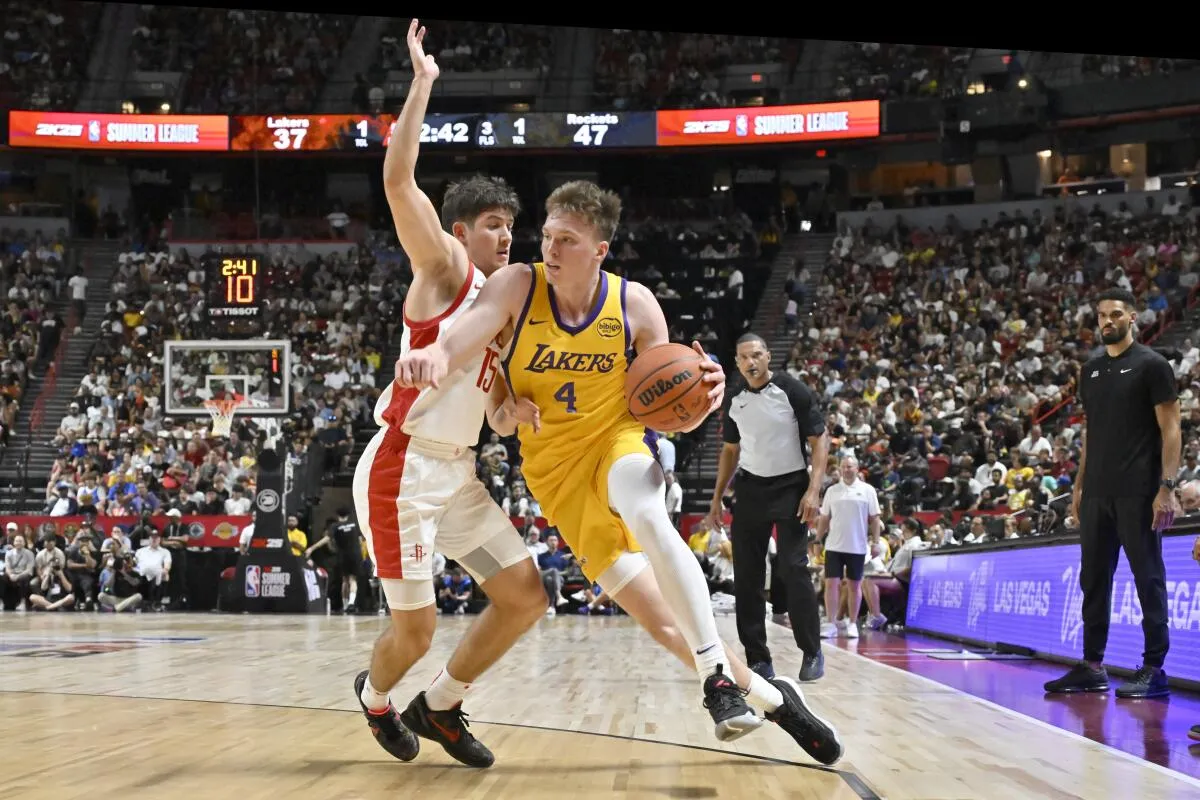
Comparisons and Expectations
Some analysts have compared Knecht to players like Kevin Huerter or Duncan Robinson — high-level shooters who work hard on defense to stay playable in big moments. Neither is a defensive stopper, but both have learned to function effectively in team systems, using positioning and anticipation rather than raw athleticism.
For Knecht, that’s the model. His ceiling will depend less on elite talent and more on how much he’s willing to grind through the parts of the game that don’t earn highlights. If he commits to growth, the scoring talent he already has could make him a dangerous playoff contributor in a year or two.
Final Verdict: Can He Go Further?
The answer is yes — but it’s conditional. Dalton Knecht has the offensive tools to thrive in the NBA. His shooting touch, spacing awareness, and shot creation will keep him on the floor. But for him to maximize his role and contribute meaningfully in high-stakes moments, he must become at least a reliable team defender.
Knecht’s rookie season has already proven he belongs. Now, it’s about taking the next step. If he can embrace the challenge defensively — much like players before him with similar profiles — there’s little reason to doubt that Dalton Knecht can go much further.









